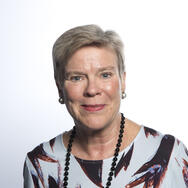Colin Kahl Returns to Stanford FSI Following Service at Pentagon
The Freeman Spogli Institute for International Studies (FSI) is pleased to announce that Colin Kahl has resumed his position at FSI as the Steven C. Házy Senior Fellow at the Center for International Security and Cooperation (CISAC), effective July 17, 2023.
Professor Kahl was on a two-year leave of absence from Stanford to serve as the Under Secretary of Defense for Policy at the Pentagon, where he was the principal advisor to the Secretary of Defense for defense policy and led the formulation and coordination of national security policy within the Department of Defense.
Under Kahl’s leadership, the Department rolled out its National Defense Strategy, focusing on the challenge of the People’s Republic of China, and he helped ensure more than $40 billion in security assistance for Ukraine since it was invaded by Russia in February 2022.
In recognition of his work at the Pentagon, Secretary of Defense Lloyd Austin awarded Kahl with the Department of Defense Medal for Distinguished Public Service.
“Colin’s work at the Pentagon had a critical impact on our country’s national security,” said Michael McFaul, director at the Freeman Spogli Institute. “Stanford is lucky to have him back. Our students and faculty have much to learn from him.”
Professor Kahl joined FSI in 2017, and became co-director of the Center for International Security and Cooperation, alongside Rodney Ewing, in 2018. He was also a founder and leader of FSI’s Middle East Initiative.
Kahl’s research focuses on the resurgence of geopolitical competition, American grand strategy, and the international security implications of emerging technologies such as artificial intelligence and machine learning.
Prior to joining the Freeman Spogli Institute, Kahl was Deputy Assistant to the President and National Security Advisor to the Vice President. In that position, he served as a senior advisor to President Obama and Vice President Biden on all matters related to U.S. foreign policy and national security affairs, and represented the Office of the Vice President as a standing member of the National Security Council Deputies’ Committee.
Kahl is the co-author of Aftershocks: Pandemic Politics and the End of the Old International Order (New York: St. Martin’s Press, 2021) and States, Scarcity, and Civil Strife in the Developing World (Princeton, NJ: Princeton University Press, 2006), and he has published widely on international security and U.S. foreign and defense policy, including in Foreign Affairs, Foreign Policy, Middle East Policy, the National Interest, the New Republic, the New York Times, Politico, War on the Rocks, and the Washington Post, among others.
At CISAC, he will return his focus to research and teaching CISAC undergraduate courses and graduate courses in FSI's Master's in International Policy program.
“The world is more complex and dangerous than at any time since the end of the Cold War, and the scholars and students at FSI have much to contribute to addressing this rapidly evolving security environment,” said Professor Kahl. “I’m thrilled to return to FSI to contribute to this vital work.”
Read More
Kahl, who previously served as co-director at FSI's Center for International Security and Cooperation, was the Under Secretary of Defense for Policy at the Department of Defense.



















